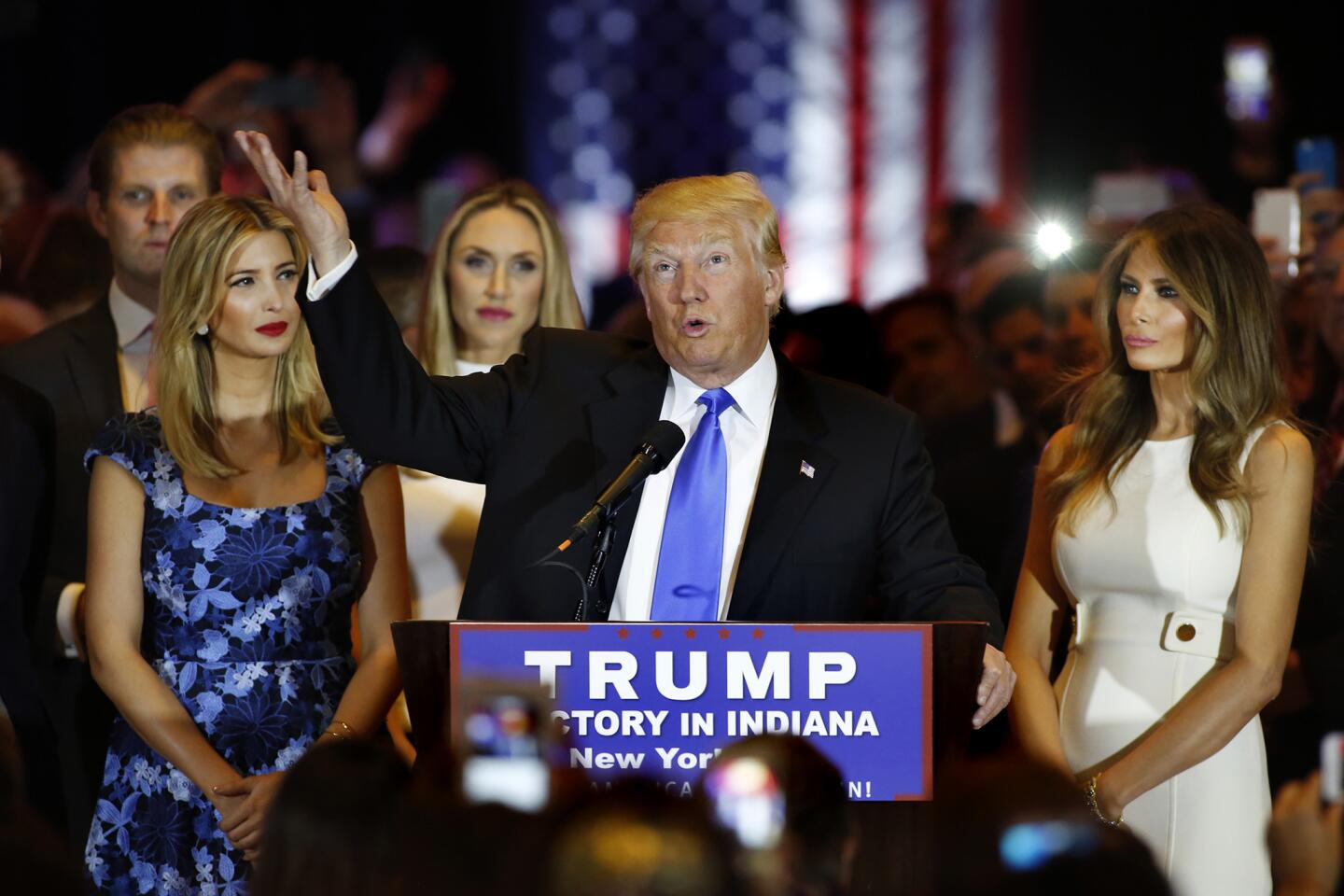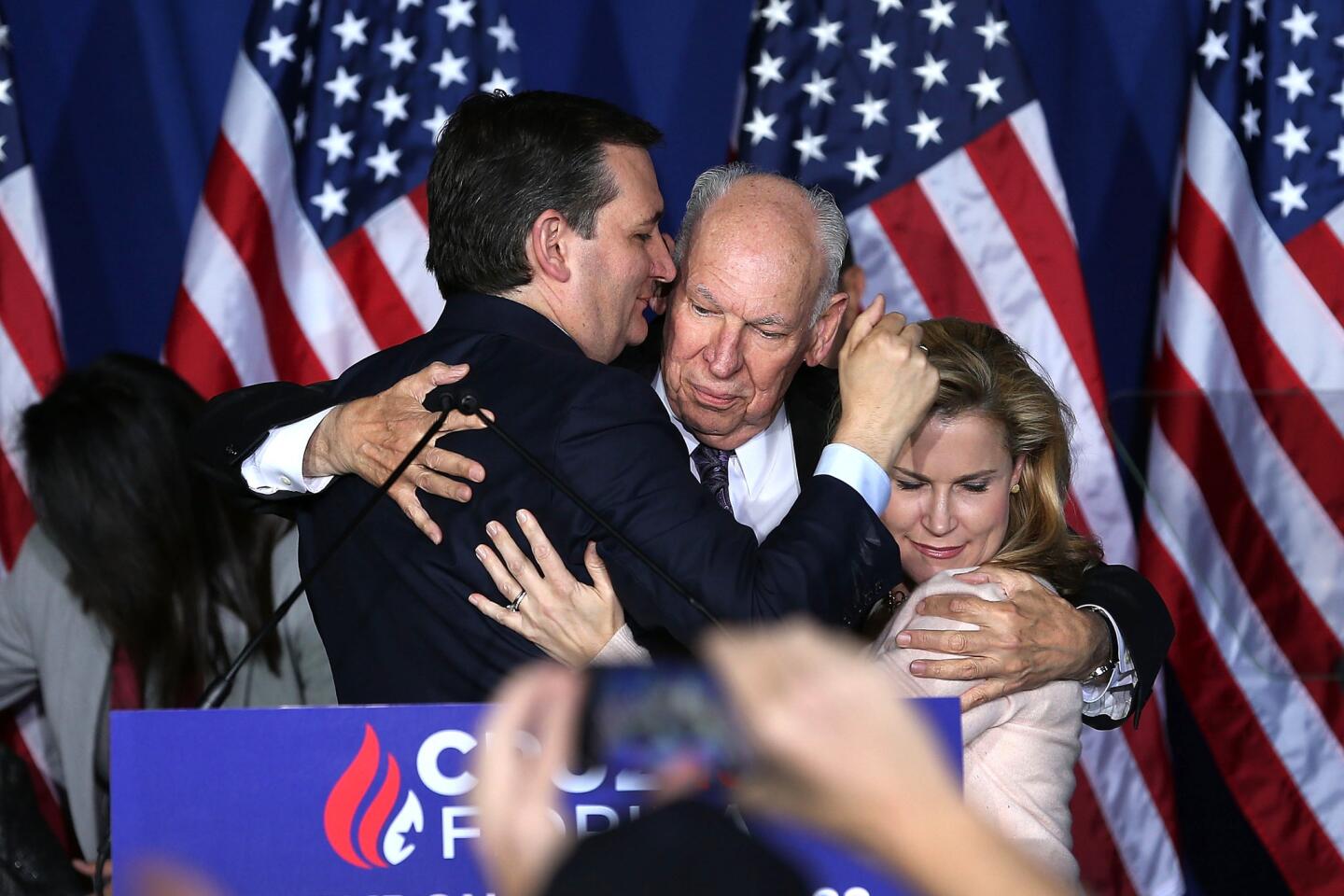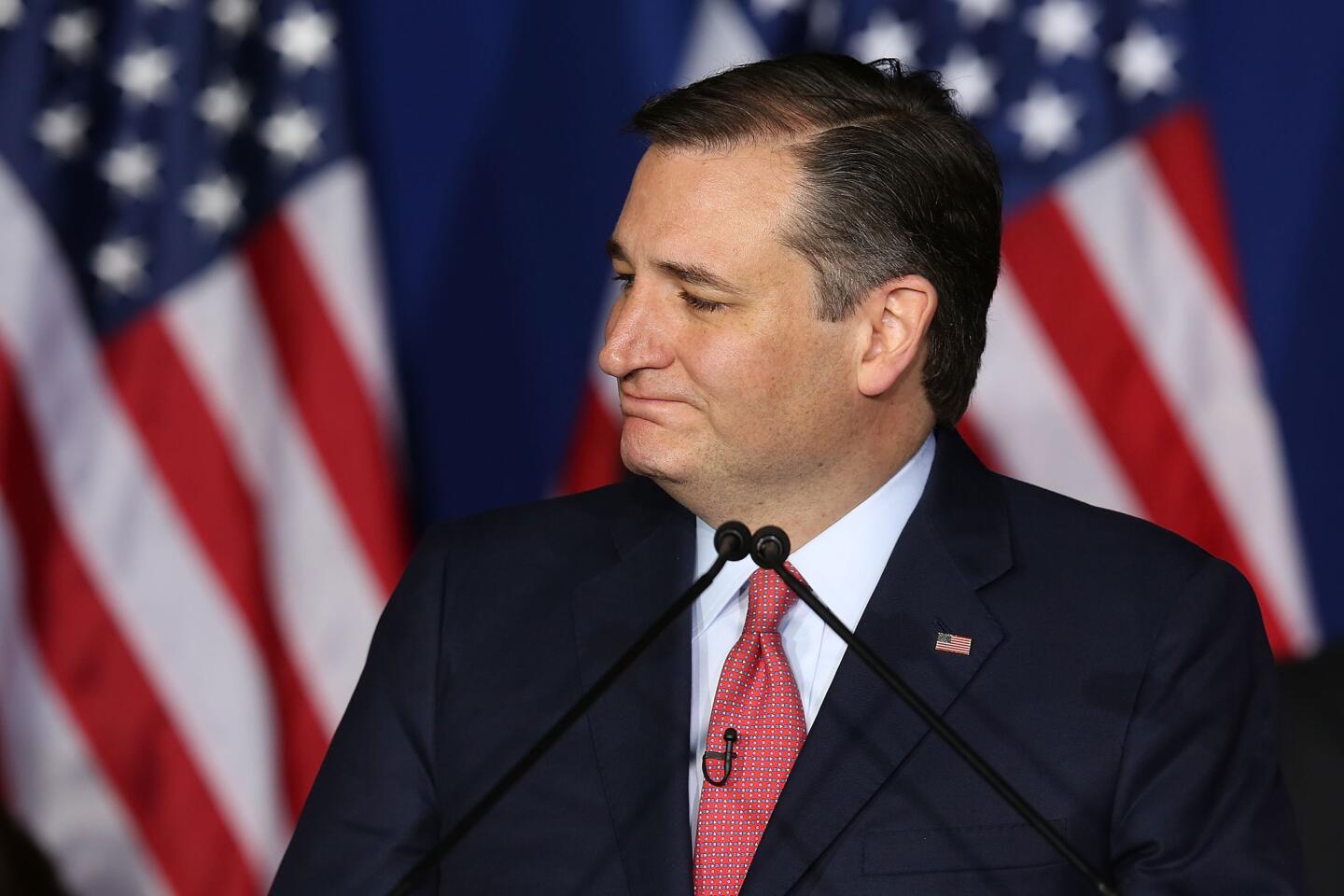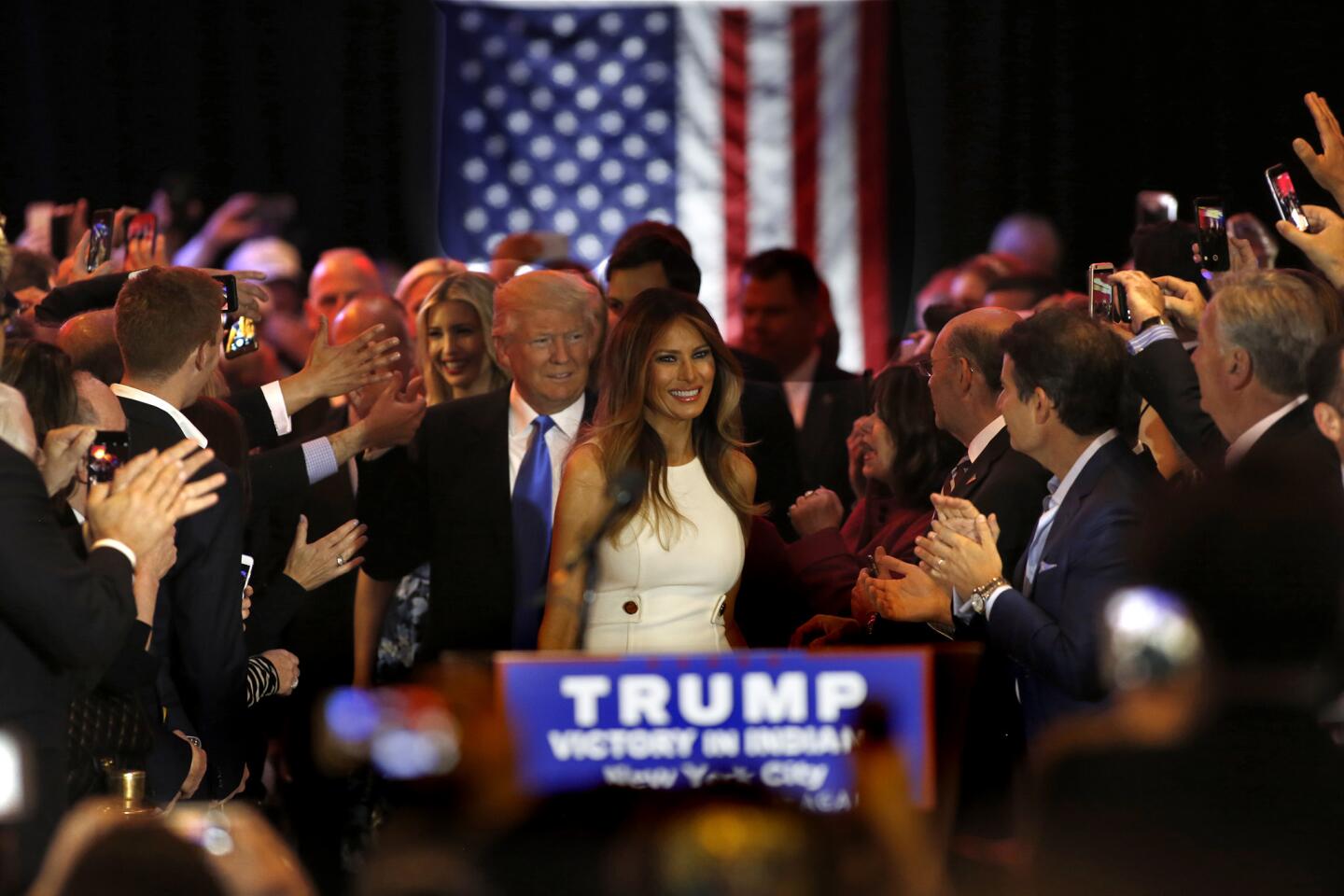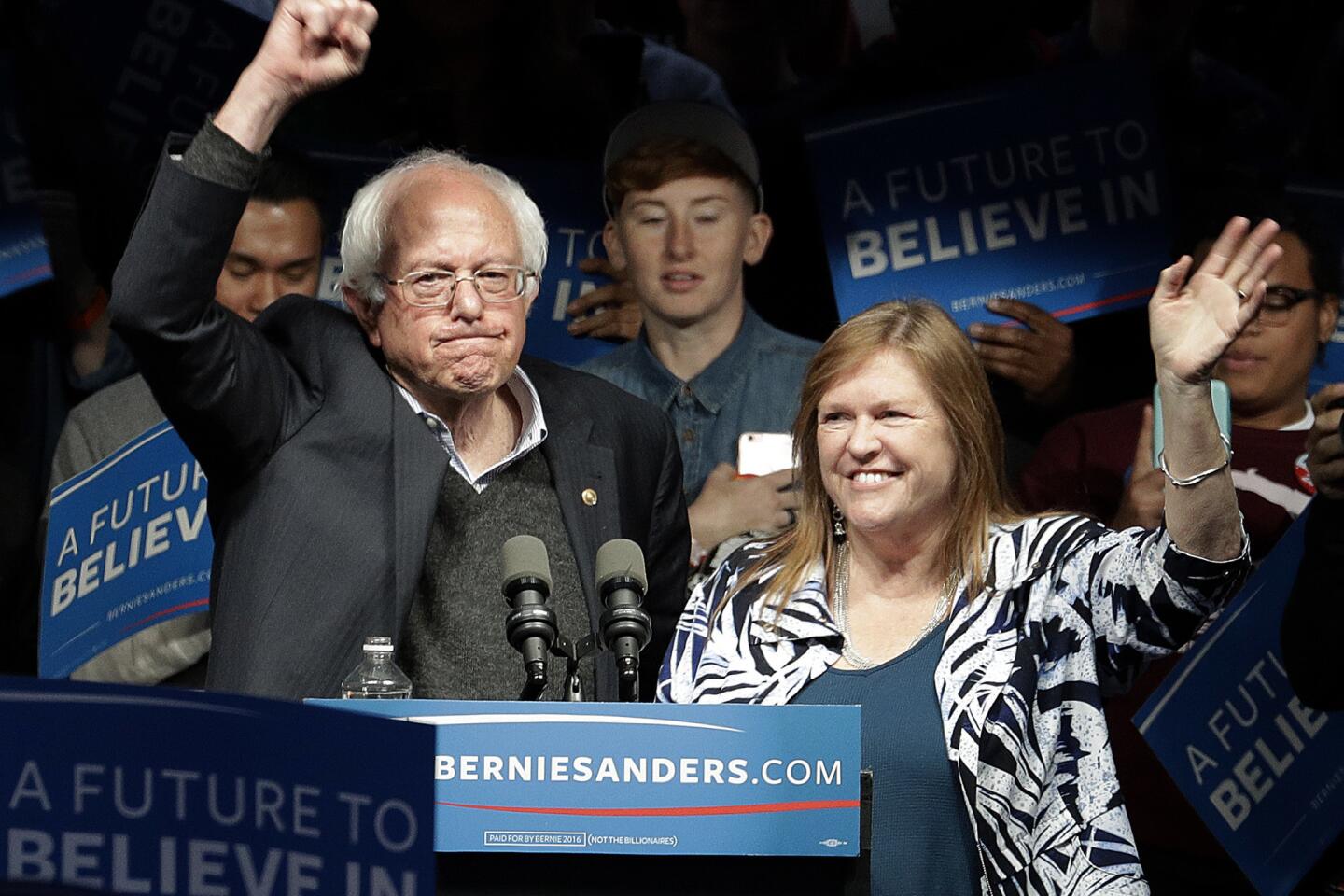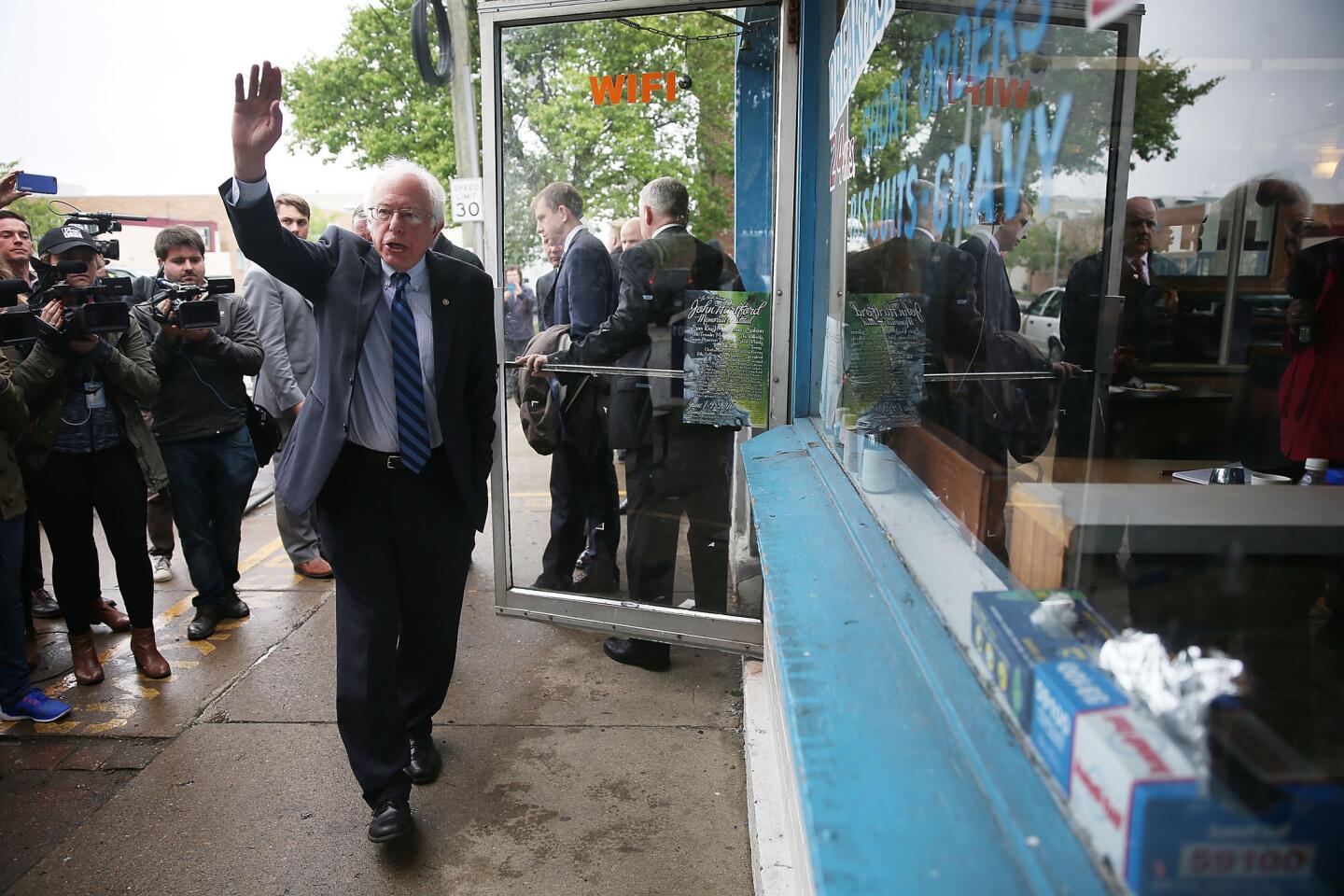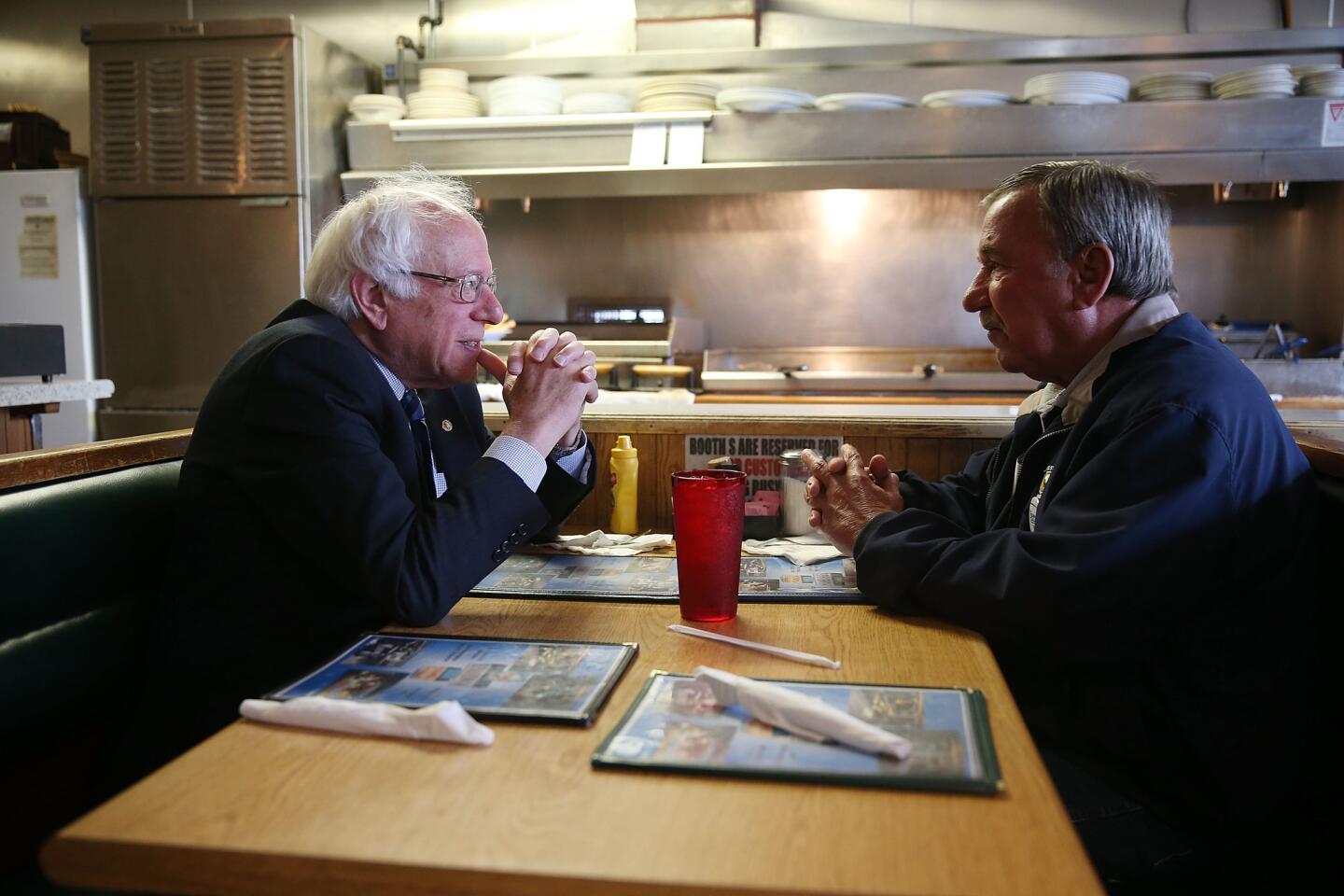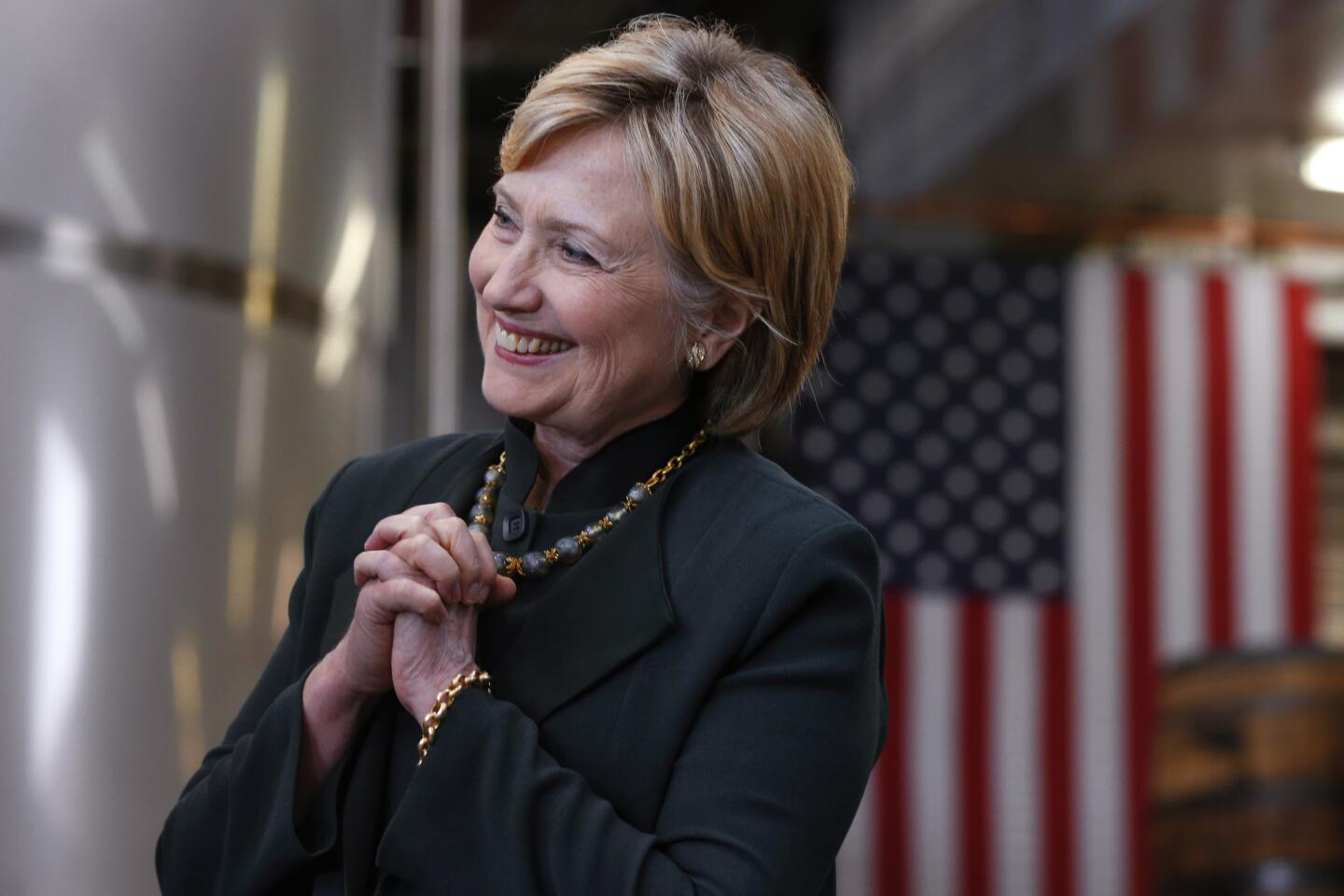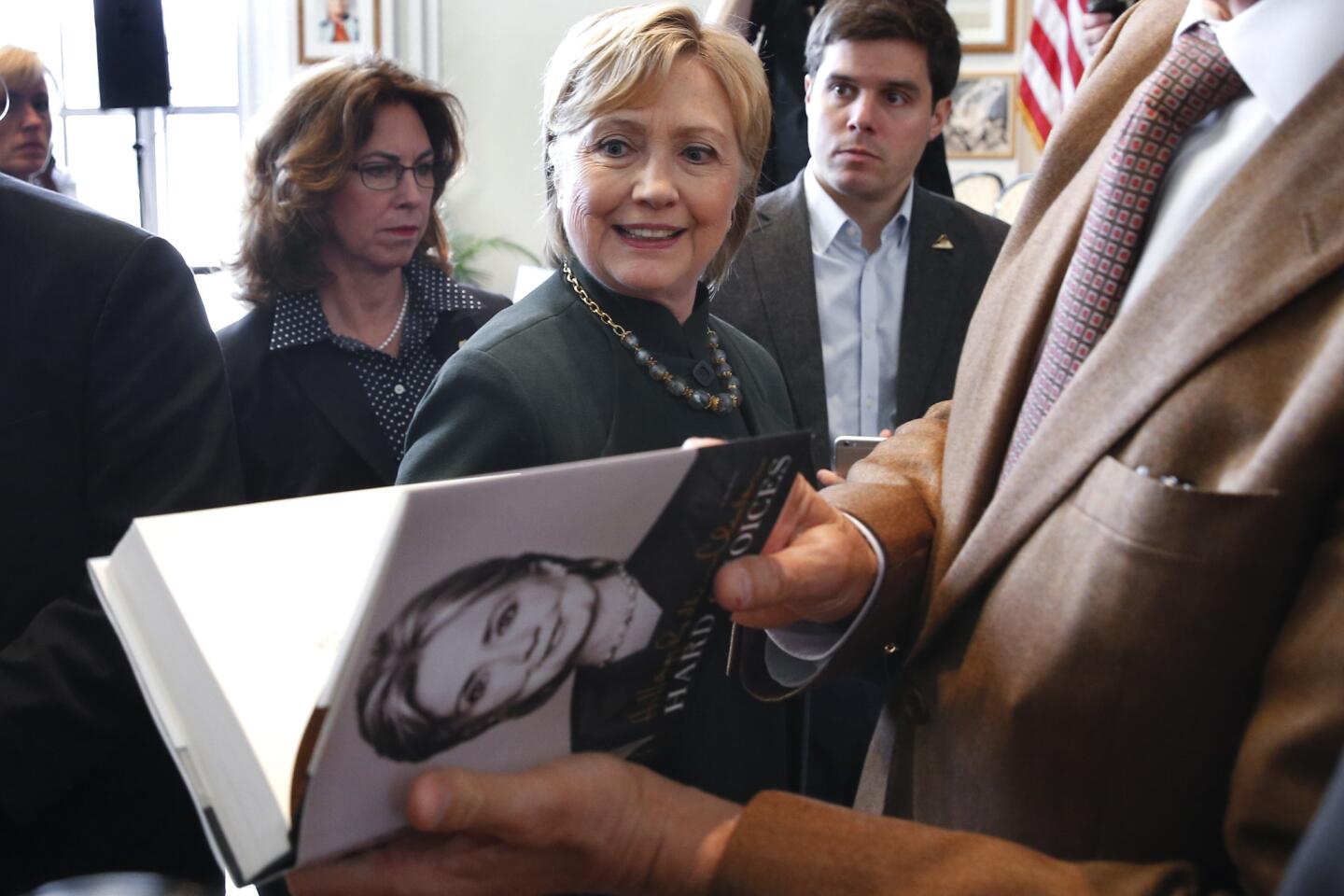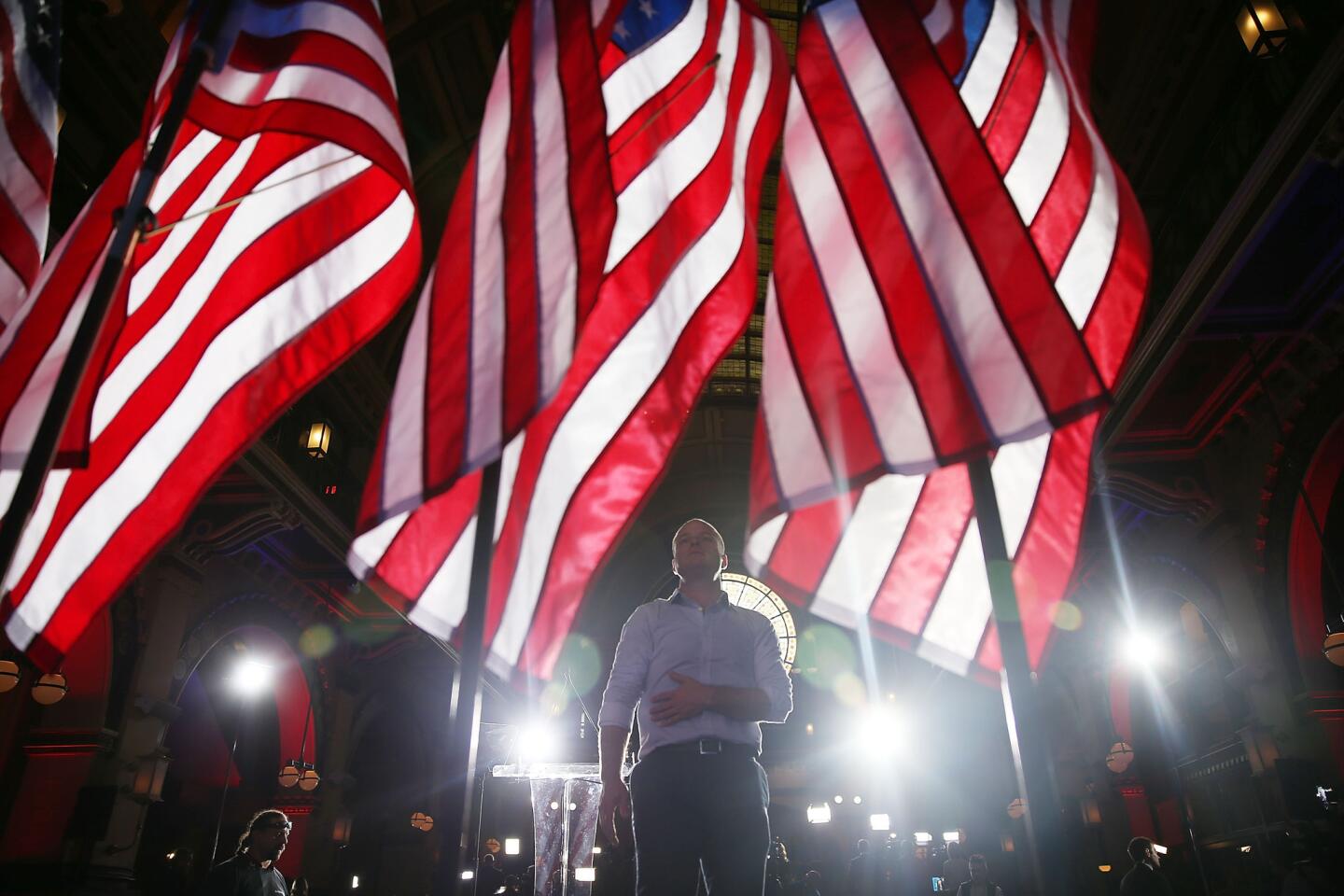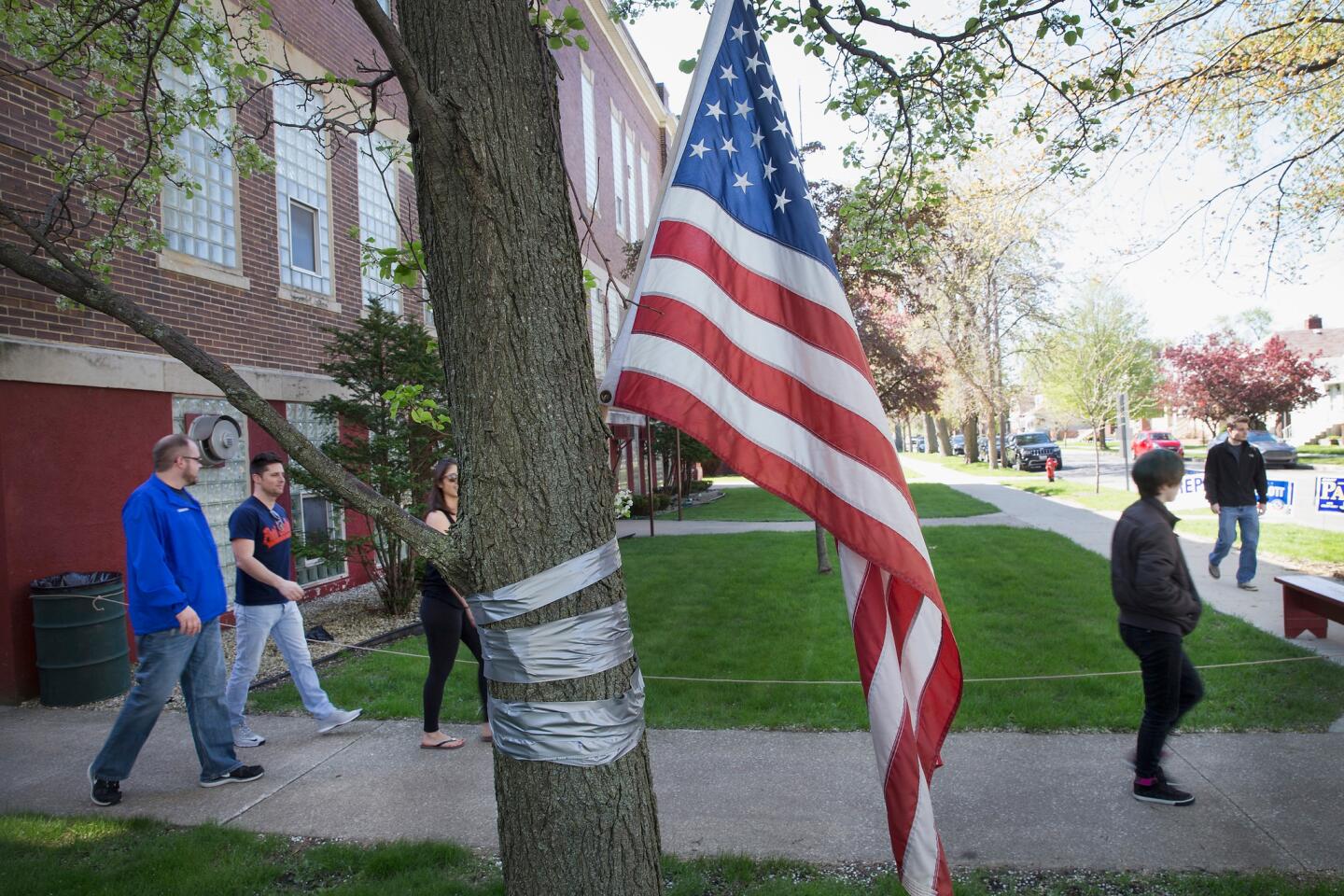After Indiana win and Cruz’s exit from race, Trump is the presumptive Republican nominee
- Share via
Reporting from Indianapolis — Donald Trump stormed to victory in the Indiana primary Tuesday, chasing Ted Cruz from the race and virtually locking down the Republican presidential nomination despite the strong misgivings of many in the party who fear a November rout.
“It’s over,” GOP strategist Curt Anderson said even before Cruz formally ended his campaign. “Done. Finished.”
Cruz acknowledged as much less than two hours after Indiana polls closed, as Trump seized a big lead he never relinquished.
Joined onstage by his family at a vintage railway station in downtown Indianapolis, with many of his top aides in the crowd, a downcast Cruz announced he would not fight the inevitable.
“We left it all on the field in Indiana; we gave it everything we’ve got — but the voters chose another path,” Cruz said. “With a heavy heart, but with boundless optimism for the long-term future of our nation, we are suspending our campaign.”
He made no mention of supporting Trump, reflecting a deep schism among Republicans that shows no signs of healing anytime soon.
The party chairman, Reince Priebus, declared Trump the presumptive nominee, even though Ohio Gov. John Kasich remains in the race and pledged Tuesday night to fight on.
“We all need to unite and focus on defeating” Hillary Clinton, the likely Democratic nominee, Priebus said on Twitter.
“No, that won’t be happening,” shot back Tony Fratto, a GOP consultant and former deputy press secretary to President George W. Bush. “But we’ll try to save the Senate.”
Critics of Trump insisted they were not yet giving up efforts to thwart his nomination and force a contested convention this summer in Cleveland.
“We’ll assess what a two-man race looks like, and we’ll see what Trump does the next couple weeks,” said Rob Stutzman, a Sacramento-based strategist helping lead an anti-Trump political action committee focused on California’s June 7 primary.
For his part, Trump was gracious and uncharacteristically subdued as he assumed the role of nominee-in-waiting, becoming the first political outsider to seize control of a major party in several generations.
He praised Cruz, whom he derided throughout the campaign as “Lyin’ Ted,” as “a tough, smart guy” and “one hell of a competitor.”
“We’re going after Hillary Clinton,” he told supporters gathered in the lobby of Trump Tower in Manhattan.
“She will not be a great president,” he said. “She will not be a good president. She will be a poor president. She doesn’t understand trade.”
For the third week in a row, following a string of landslide primary wins across the Northeast and mid-Atlantic states, the outcome Tuesday was clear the instant polls closed.
Of all his recent victories, Trump’s showing in Indiana was the most significant; the Midwest was a region where the Manhattan real estate magnate had struggled, and the state — moderately conservative, with a stolid sensibility — was viewed by many as the last best chance for Trump’s opponents to slow his steamrolling campaign.
Cruz also enjoyed advantages he lacked in other states, including the endorsement, albeit lukewarm, of Gov. Mike Pence, and millions of dollars in advertising from independent groups working against Trump.
A victory, Trump repeatedly told audiences, would close out the long, raucous fight for the GOP nomination. “If we win Indiana, it’s over,” he told a crowd Sunday in Terre Haute.
There are five weeks left in the primary season, and Trump cannot win all the delegates needed for the nomination until California and four other states vote June 7.
Still, the outcome seems nothing short of preordained, with Kasich a vast distance behind Trump in both the popular vote and delegate count after winning nowhere but his home state.
“This cake is baked,” said Charlie Cook, an independent campaign analyst and publisher of the nonpartisan Cook Political Report. “California and the … remaining states will just be the icing on the cake for Donald Trump.”
The margin of Trump’s win in Indiana was bigger than expected in a state once perceived as toss-up. With almost all of the votes counted, Trump was leading Cruz, 53% to 37%, suggesting he will win most, if not all, of Indiana’s 57 delegates under its winner-takes-most system.
Entering the day, the Republican front-runner had 996 of the 1,237 delegates needed to secure the GOP nomination. Cruz and Kasich trailed far behind, with 565 and 153 delegates, respectively.
Over the last two weeks, Cruz made a series of moves that signaled his increasing desperation and the dwindling odds of his overtaking the Republican front-runner.
He formed a shaky non-compete alliance with Kasich, who stood aside in Tuesday’s contest to boost Cruz’s chances. He named his prospective vice presidential running mate, former business executive Carly Fiorina, forging ahead on an
announcement usually left until the primary fight is over.
On Tuesday morning, as Hoosiers went to the polls, the Texas senator leveled one of his most scathing attacks on Trump, calling him a “pathological liar,” “utterly amoral,” “a serial philanderer” and “a narcissist at a level I don’t think this country’s ever seen.”
Hours earlier, in a Fox News interview, Trump referred to an unsubstantiated National Enquirer report linking Cruz’s father, Rafael, to Lee Harvey Oswald, the assassin of President Kennedy.
“I guess I should go ahead and admit — yes, my dad killed JFK,” Cruz sarcastically told reporters. “He is secretly Elvis, and Jimmy Hoffa is buried in his backyard.”
Cruz, along with Kasich, had been mathematically eliminated from winning the GOP nomination outright. Their hopes had rested on together denying Trump the delegates he needs to clinch ahead of the convention, then wresting the nomination away during a floor fight in Cleveland.
Kasich made no appearance Tuesday night, consistent with his pattern on repeated unsuccessful election nights. But his chief strategist issued a defiant statement.
“Our party is facing a clear choice between positive solutions that can win November and a darker path that will solve nothing and lead to Hillary Clinton in the White House, a Democrat Senate and a liberal Supreme Court,” said John Weaver. “Gov. Kasich will fight for the higher path.”
Others in the party, though, turned their sights to the fight for control of Congress.
Cook suggested that Trump atop the ticket reduced the Republican’s chances of hanging onto the Senate from slightly better than 50-50 to roughly 30% to 40%.
Dan Hazelwood, a Republican strategist with candidates in House and Senate races across the country, said much would depend on whether Trump — who starts out as the least popular general election candidate in modern times — successfully recasts his image.
“The fundamental question, can he use his ability to dominate the news cycle to make a case that he is not the scoundrel many perceive?” Hazelwood asked. “Trepidation or nervous glee is what you feel depending your answer.”
Twitter: @markzbarabak
Twitter: @melmason
Barabak reported from San Francisco and Mason from Indianapolis. Times staff writers Michael Finnegan, Kurtis Lee and Seema Mehta in Los Angeles contributed to this report.
ALSO
Cruz’s faltering campaign shows the risks of depending on a few wealthy donors
Rising confidence in California’s economy is a challenge for GOP presidential candidates
Sorry, Trump, Cruz and Kasich: These high-profile Republicans are just not that into you
More to Read
Sign up for Essential California
The most important California stories and recommendations in your inbox every morning.
You may occasionally receive promotional content from the Los Angeles Times.
